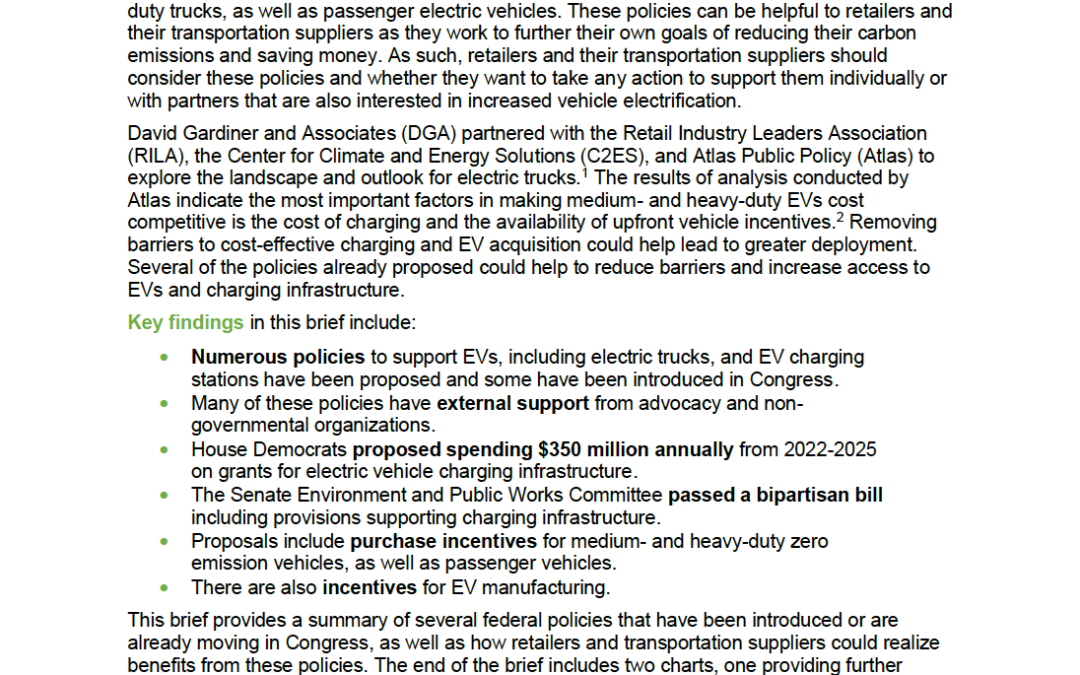Companies, organizations, and individuals are thinking more about electric vehicles (EVs) and how supporting further deployment could positively impact the U.S. economy as a whole, as well as individual sectors.
Electric vehicle policies may support EV charging infrastructure, electric medium- and heavy-duty trucks, as well as passenger electric vehicles. These policies can be helpful to retailers and their transportation suppliers as they work to further their own goals of reducing their carbon emissions and saving money. As such, retailers and their transportation suppliers should consider these policies and whether they want to take any action to support them individually or with partners that are also interested in increased vehicle electrification.
David Gardiner and Associates (DGA) partnered with the Retail Industry Leaders Association (RILA), the Center for Climate and Energy Solutions (C2ES), and Atlas Public Policy (Atlas) to explore the landscape and outlook for electric trucks. The results of analysis conducted by Atlas indicate the most important factors in making medium- and heavy-duty EVs cost competitive is the cost of charging and the availability of upfront vehicle incentives. Removing barriers to cost-effective charging and EV acquisition could help lead to greater deployment. Several of the policies already proposed could help to reduce barriers and increase access to EVs and charging infrastructure.
Key findings in this brief include:
- Numerous policies to support EVs, including electric trucks, and EV charging stations have been proposed and some have been introduced in Congress.
- Many of these policies have external support from advocacy and non-governmental organizations.
- House Democrats proposed spending $350 million annually from 2022-2025 on grants for electric vehicle charging infrastructure.
- The Senate Environment and Public Works Committee passed a bipartisan bill including provisions supporting charging infrastructure.
- Proposals include purchase incentives for medium- and heavy-duty zero emission vehicles, as well as passenger vehicles.
- There are also incentives for EV manufacturing.
This brief provides a summary of several federal policies that have been introduced or are already moving in Congress, as well as how retailers and transportation suppliers could realize benefits from these policies. The end of the brief includes two charts, one providing further details about these introduced policies, and a second describing additional proposals made by NGOs and coalitions that could also support electric vehicles.
Download the issue brief by filling out the form below.
